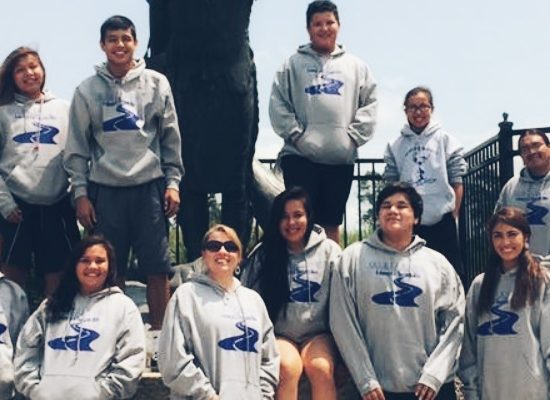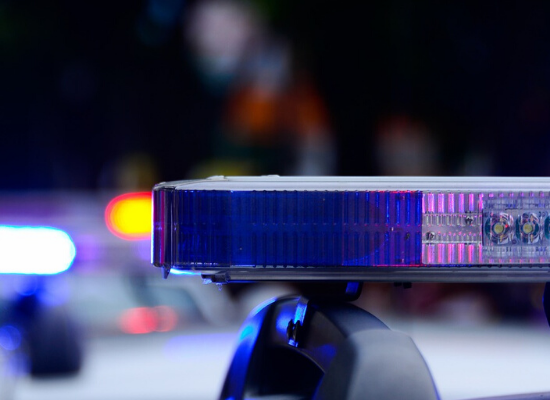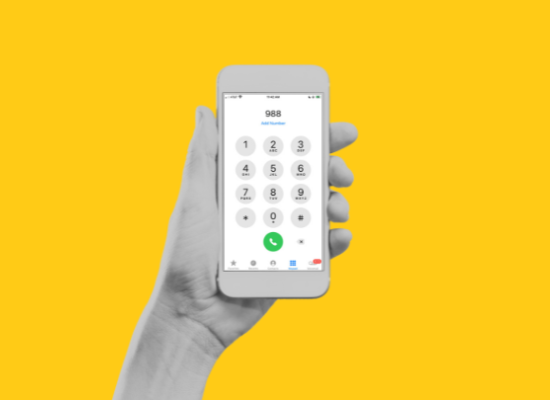
Stephanie Hepburn is a writer in New Orleans. She is the editor in chief of #CrisisTalk. You can reach her at .
Psychologist Stephanie Woodard, senior advisor on behavioral health at Nevada DHHS, says the coronavirus pandemic’s universality has been profound. “Whether that’s directly by the illness or its effects,” says Dr. Woodard, “or indirectly through increased stressors, isolation, job loss, or school closures.” It has forced people to adapt rapidly to an unknown world, and, for many, it’s a novel and uncertain place.
“I don’t think anyone can tune into the news these days without recognizing the suffering that’s happening on a human level, and the scale of that suffering is significant,” she says.
Like 9/11, experts have framed the COVID-19 pandemic as a mental health emergency during a collective and unprecedented disaster. Unlike Sept. 11, where no field, including behavioral health, was adequately prepared, experts know a great deal more today about what people need during and after a crisis—even though each has its own context and nuances. That includes, says Dr. Woodard, a public health approach to mental health, ensuring there are members of the community who have the skills to recognize and manage stress and lend support to family, friends, and coworkers. She calls it a caring community.
Despite uncertainty during the pandemic, or perhaps because of it, Dr. Woodard notes that the negatives have come hand-in-hand with increased compassion. The general population is suddenly more aware of the mental health effects of disasters, with suicide and substance use disorders on the radar of communities and the media alike. She has the numbers to prove it. Since April, over 500 people in the state have signed up to learn psychological first aid through the American Red Cross, an acute intervention designed to reduce distress and foster short- and long-term function and coping in people dealing with a disaster or its aftermath.
“We’ve been able to bring psychological first aid to the state in a way we haven’t before,” says Dr. Woodard. “The trainings fill up within hours of us advertising them, demonstrating that people want to be skilled and ready to assist their community, neighbors, and friends.”
Participants are from food banks, faith-based organizations, and just ordinary people in the community. Like with basic first aid and CPR for medical crises, people self-select to learn psychological first aid to help people in an emergency. It’s more than that, though, notes Dr. Woodard. Yes, the idea is for trainees to identify a crisis “but also to learn and teach healthy coping to prevent adverse effects from exposure to traumatic events and disasters.”
With no end of the pandemic in sight, people are becoming increasingly fatigued as we slip into the disillusionment phase, where optimism turns to discouragement and people’s coping strategies may break down. “Many people have been running on adrenaline, busy navigating the ever-changing nuances of the pandemic,” says Dr. Woodard, “or have faced some real challenges like the illness itself or sudden unexpected job loss and are just trying to manage day-to-day.”
The collective COVID-19 pandemic experience, says Dr. Woodard, has made people keenly aware of our need for connection. She says this is true even for introverts, who society has often broadly discussed as the only people likely enjoying physical distancing requirements. “Our brains are wired to connect with one another, whether that’s exchanging a glance or smile at the grocery store or having deep, meaningful conversations with people you trust.” People are recognizing, she says, how important these moments are when not too long ago, we weren’t as intentional about having them.
“Before COVID, we may not have fully appreciated how meaningful even casual day-to-day social interactions are, and how those interactions play a vital role in our lives,” she says.
How we view ourselves and our connection to the social world around us, points out Dr. Woodard, is often predicated on what people reflect back to us, even in the most subtle interactions. Suddenly, we lost those connections when isolated in our homes during the first months of the pandemic. “Even now, as our communities open up,” says Dr. Woodard, “we face challenges connecting.”
When isolated, the mind can trick us into thinking we are the only ones feeling secluded and alone when, really, we’re not. This causes a snowball effect where we might hesitate to reach out to others because we assume they’re doing just fine. “It becomes a self-fulfilling prophecy,” says Dr. Woodard, “the less we reach out, the more isolated we become.” She says contacting and having a conversation with someone who may feel isolated can make all the difference, which is why having more and more people trained in psychological first aid matters.
As some communities reopen and others return to increased restrictions, we’re also entering what many people are calling “the new normal” and trying to define what that means—all while balancing the risks and benefits of avoiding contagion and meeting our basic needs for connection and purpose. Dr. Woodard notes that even though the pandemic has affected many Americans, it’s had a disproportionate impact on marginalized populations. “To address this,” she says, “states must pay particular attention and create programming to ensure these groups have rapid access to the care they need.”
In May, Nevada became the recipient of $654,640 from the Federal Emergency Management Agency (FEMA) for the Crisis Counseling Immediate Services Program, providing funding for services up to 60 days and 9 months after a presidential disaster declaration. This had allowed the state to deploy 39 pandemic crisis counselors, called Resilience Ambassadors, throughout the state.
Dr. Woodard says this is Nevada’s first CCP, which simultaneously means the state doesn’t have one to build on and there’s an opportunity to create one based on the public health model she and her colleagues believe is essential to suicide and mental health crisis prevention and intervention. They are calling it the Nevada Resilience Project.
The ambassadors, highly trained in psychological first aid and suicide prevention, are deployed at Boys and Girls Clubs across the state, the Frontier Community Coalition, the Southern Nevada Health District, Washoe County Human Services, Crisis Support Services of Nevada, and the Division of Aging and Disability-Nevada CAN. The latter is the state’s COVID-19 rapid response team for homebound seniors. The CCP grant also funds public awareness campaigns on healthy ways to cope and manage stress during the pandemic and access resources in the community.
Dr. Woodard points out that Nevada helped regions build their early response capacity even before coronavirus, but now it can further put basic stabilization skills into people’s hands to support their communities. “The goal is to expand the number of people in a community who are ready, willing, and able to provide outreach,” says Dr. Woodard, “and teach positive coping to those in need early to prevent the need for more formal behavioral health interventions, and to promote psychological well-being in our communities and schools.”
According to Dr. Woodard, a public health approach to mental health promotion strengthens a much-needed safety net for Nevada, a state with large swaths of rural and frontier areas and a behavioral health provider shortage. “Some of our counties have few people and a lot of distance between resources and where people live.” Community members knowledgeable in psychological first aid, she says, are vital partners to the state’s crisis care response system. Together, the 39 CCP resilience ambassadors and the 100 plus volunteers trained in psychological first aid make up a formal and informal community support continuum. It’s all part of Dr. Woodard’s enduring sustainability plan where “the volunteer pool will exist long after the CCP is complete.” She says if there’s a disaster and a county needs a person trained in psychological first aid, DHHS could deploy volunteers.
Throughout the nation, notes Dr. Woodard, there’s a great deal of dependence on formal behavioral health treatment services and a dichotomous view that either a community has resources or it doesn’t. Yet, says Dr. Woodard, most people in crisis prefer to speak to someone they know and trust in their community. “We recognize that when someone is emotionally struggling, the last place that most people first select to go is the emergency room. Our communities can provide the vital supports needed for prevention and early intervention for people experiencing early crises. More often than not, people rarely identify themselves as in crisis until the crisis is so great they need formal intervention.”
A natural extension to the formal behavioral health treatment system is to bring in the community: people who are aware and adequately trained to assist and intervene. “Mental health promotion, prevention, and early intervention must be cultivated where we all live, learn, work, and play. When our communities can respond to the needs of each of us, we are all more resilient together.”
“This,” says Dr. Woodard, “allows us to have tough conversations with each other, but conversations we need to have.”









